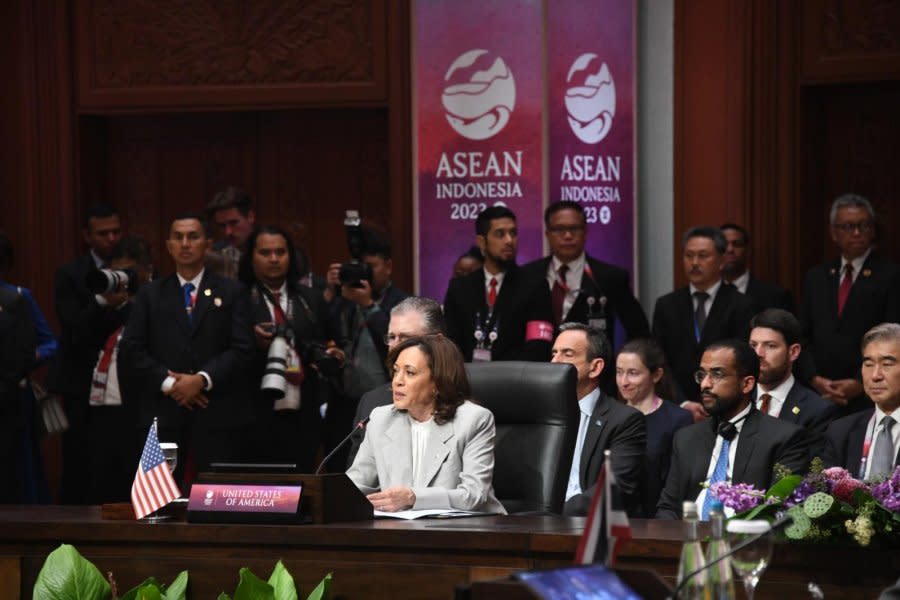U.S.-ASEAN Center to be established in D.C., as VP Harris seeks to strengthen relations in Asia

Sept. 6 (UPI) -- Vice President Kamala Harris, in Jakarta for a U.S.-Association of Southeast Asian Nations summit Wednesday, announced their intent to establish a joint center in Washington, D.C., as the Biden administration continues to strengthen relations in the Indo-Pacific amid growing tensions with China.
Under the Biden administration, the United States has sought to solidify relationships with countries in the Indo-Pacific in line with its vision for a connected, prosperous, resilient, secure and free and open region. During last year's summit in Phone Penh, they upgraded their relationship to a Comprehensive Strategic Partnership.
On Wednesday, Harris reaffirmed the United States' "enduring commitment" to Southeast Asia and the Indo-Pacific, stating Washington is "a proud Pacific power," and they have "a profound stake" in the region's future.
In a demonstration of the importance the Biden administration places on this relationship, Harris announced that they intend to establish the first-ever U.S.-ASEAN Center in Washington to facilitate official engagements and support further exchanges between their governments, people and businesses.
"ASEAN is at the center of America's commitments to the Indo-Pacific," she said in remarks at the Balai Sidang Jakarta Convention Center where the 11th U.S.-ASEAN Summit was being held. "As the United States Indo-Pacific strategy makes clear, we are committed to ASEAN centrality."
The United States has an enduring commitment to Southeast Asia. At the U.S.-ASEAN Summit and the East Asia Summit in Jakarta, we will build on our continued work to deliver results for the people of our nations and the world. pic.twitter.com/3CdD3Tokq8— Vice President Kamala Harris (@VP) September 6, 2023
The center will be established through a public-private partnership, according to the State Department, which said in a release that it has already entered into such an arrangement with Arizona State University to launch the facility.
UPI has asked ASU for comment.
"The center will further institutionalize and deepen the relationship between the United States and ASEAN ... while bolstering support for U.S. economic and cultural engagement with Southeast Asia," the State Department said in a statement.
The White House added that the center will ensure the U.S.-ASEAN elevated relationship to a Comprehensive Strategic Partnership "reaches its full potential."
The summit was held as tensions continue to further deepen not only between Washington and Beijing but Beijing and its neighbors in the Indo-Pacific region where they argue over territorial claims.
Late last month, China released its national map which has been rebuked by India, Malaysia, Philippines, Taiwan and Vietnam.
Though she did not mention China by name, Harris in her remarks stated that the United States and ASEAN "have a shared commitment to international rules and norms and to our partnership on pressing national and regional issues."
"The defense and deterrence commitments of the United States and our security presence in the Indo-Pacific help protect our homeland and ensure regional stability," she said. "It is therefore in our vital interest to promote a region that is open, interconnected, prosperous, secure, and resilient."

